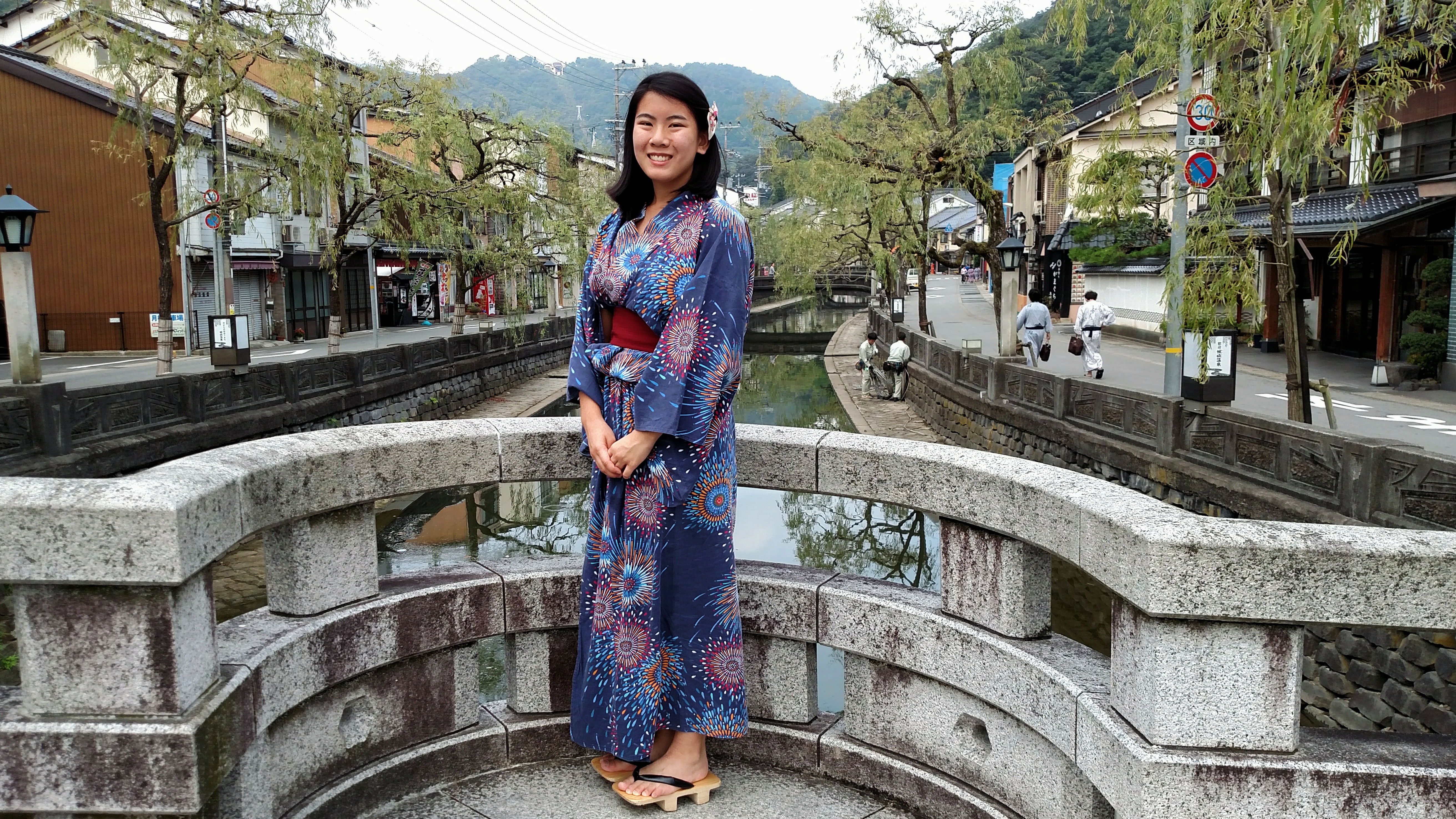
Kyla Smith ’20 in Kinosaki Onsen, August 2016.
Born in China and raised in Hawaii by her adoptive parents, Kyla Smith ’20 has sought ways to connect with her birth country. As a Scripps student, she has lately been exploring her identity and heritage through her coursework, double majoring in Asian American studies and Asian studies and enrolling in Mandarin language classes. This summer, Smith plans to fully immerse herself in Chinese language and culture, having received a Critical Language Scholarship (CLS) to study Mandarin in Xi’an, China, for two months, beginning in late June.
Funded by the United States Department of State’s Bureau of Educational and Cultural Affairs, CLS is an overseas language and cultural immersion program for American college students. The program is focused on expanding students’ proficiency in languages that the department has deemed critical to U.S. economic competitiveness and national security, including Arabic, Azerbaijani, Bangla, Chinese, Hindi, Indonesian, Japanese, Korean, Persian, Punjabi, Russian, Swahili, Turkish, and Urdu. CLS scholars are expected to continue their language study beyond the scholarship and apply their critical language skills in their future careers.
Smith says she was both shocked and thrilled when she learned she had been accepted into the highly competitive program. “I’ve been studying Mandarin since I was in elementary school, but I still have a lot of room for improvement. I’m excited to get to spend two months purely focused on learning and speaking the language.”
As a CLS Scholar, Smith will attend 20 hours of language classes per week as well as practice with language partners, complete homework, and participate in various planned activities. When her CLS scholarship concludes in August, she will return to the U.S. for a short time before heading to Osaka, Japan, to study abroad for a semester in an intensive Japanese language program.
“My Japanese is hardly conversational, as I stopped studying it after high school. But part of my mom’s side of the family is Japanese, so I want to learn Japanese to connect with that side of my heritage and culture.”
As part of her studies, Smith also hopes to explore her interest in transracial and transnational adoption—arrangements in which the adopted child’s race and/or nationality differs from that of their adopted parents. “My own adoption was transracial and transnational, and I’m interested in delving deeper into these topics,” she says, adding that she hopes to use her research to inform her senior thesis.
Eventually, Smith would like to integrate her love of languages with her passion for astronomy, which she is minoring in.
“I am interested in becoming an interpreter for the aeronautics industry and space exploration—it’s a bit farfetched right now, but my dream is to work with NASA,” she says. She is especially interested in how she might serve to bring the U.S. and Chinese space programs together; in 2011, NASA cut ties with the China National Space Administration due to fear of espionage.
“If there are any dealings that happen in the future, I would love to bridge the gap in understanding through interpretation,” she says.

